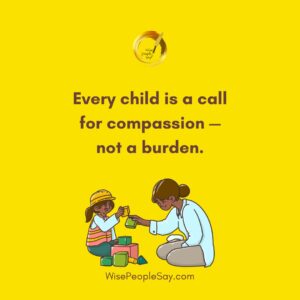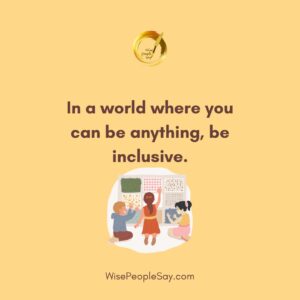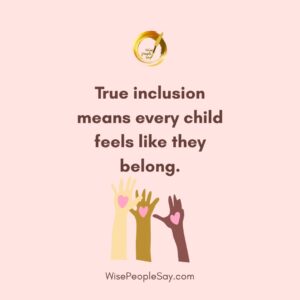Love Needs Presence, Not Words
“Love doesn’t need words, eye contact, or milestones — it just needs presence.” WisePeopleSay Love isn’t measured by spoken words, eye contact, or traditional milestones. It’s about being fully present with someone, offering your time, attention, and heart. Presence communicates care and acceptance in ways words often cannot. For children with diverse support needs, this kind of love is powerful and healing. When we show up and stay present, we affirm their worth and foster a deep connection. Love is simplest—and strongest—when it’s truly present. Helpful Note:👉 Simple daily routines like cuddling, singing, or just sitting nearby help create deep emotional bonds — even without words. Sharing is Caring!
Love Needs Presence, Not Words Read More »





